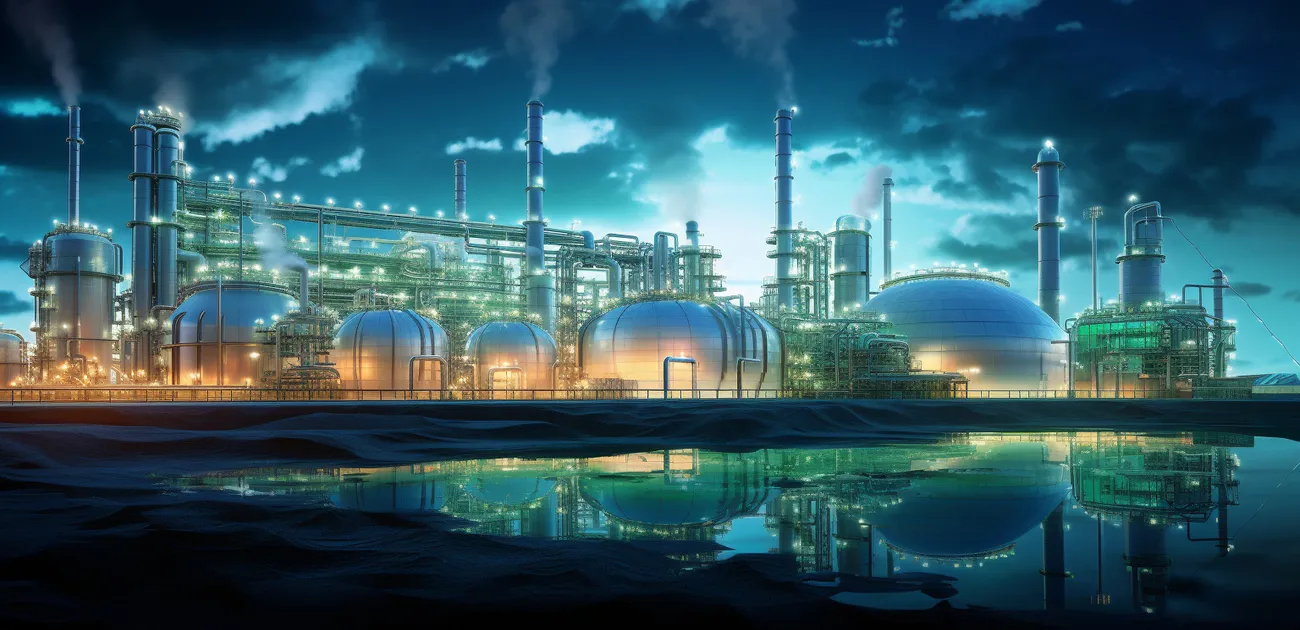Understanding the Impact of AI on Biogas Plants

Understanding the Impact of AI on Biogas Plants
Table of Contents
- Introduction
- What is AI?
- Biogas Plants: An Overview
- The Benefits of AI in Biogas Plants
- Enhanced Efficiency and Optimization
- Improved Monitoring and Maintenance
- Enhanced Biogas Production
- Challenges and Considerations
- Conclusion
Introduction
Artificial Intelligence (AI) has revolutionized numerous industries, and one sector that is experiencing its transformative potential is biogas plants. In this blog post, we will explore the impact of AI on biogas plants, uncovering the benefits and challenges associated with its implementation.What is AI?
Artificial Intelligence refers to the simulation of human intelligence in machines that are programmed to mimic cognitive processes such as learning, reasoning, and problem-solving. AI systems can analyze vast amounts of data, identify patterns, and make informed decisions or predictions based on the information provided.Biogas Plants: An Overview
Biogas plants are facilities that utilize organic waste to produce biogas, a renewable energy source. These plants employ anaerobic digestion, a process where microorganisms break down organic matter in the absence of oxygen, resulting in the production of biogas composed primarily of methane and carbon dioxide.The Benefits of AI in Biogas Plants
Implementing AI in biogas plants offers several advantages that contribute to increased efficiency, enhanced production, and improved maintenance.Enhanced Efficiency and Optimization
AI-powered systems can optimize various aspects of biogas plant operations. Through real-time data analysis, AI algorithms can adjust parameters like temperature, pH levels, and feeding rates to maximize biogas production. By continuously monitoring and adapting to changing conditions, AI enables biogas plants to operate at peak efficiency, leading to higher energy outputs.Improved Monitoring and Maintenance
Monitoring the performance and health of biogas plants is vital for identifying issues and ensuring optimal functioning. AI-based monitoring systems can analyze sensor data and detect anomalies or deviations from normal operating conditions. This early detection enables proactive maintenance, reducing downtime and minimizing the risk of system failures.Enhanced Biogas Production
AI can significantly improve biogas production by optimizing feedstock composition and enhancing the breakdown of organic matter. AI algorithms can analyze the characteristics of different organic waste inputs and determine the ideal mix to achieve optimal methane yields. Additionally, AI can optimize the anaerobic digestion process by identifying the most favorable operating conditions for microorganisms, leading to increased biogas production.Challenges and Considerations
While AI presents remarkable opportunities for biogas plants, there are several challenges and considerations that need to be addressed.Data Availability and Quality
Implementing AI in biogas plants requires access to accurate and reliable data. Obtaining comprehensive data sets that capture the diverse variables and conditions within a plant can be challenging. Additionally, data quality is crucial for training AI models effectively and ensuring accurate predictions and decision-making.
Integration and Compatibility
Integrating AI systems into existing biogas plant infrastructure may require modifications or upgrades to ensure compatibility. Retrofitting plants to accommodate AI technologies can involve significant costs and technical complexities. Careful planning and collaboration between AI experts and biogas plant operators are necessary for seamless integration.
Human Expertise and Trust
Although AI can automate many processes, human expertise remains crucial for decision-making and troubleshooting. Biogas plant operators need to understand the limitations and possibilities of AI and possess the knowledge to interpret and act upon AI-generated insights. Trust-building between human operators and AI systems is essential for successful adoption and long-term cooperation.
Conclusion
AI is poised to revolutionize the biogas industry, offering improved efficiency, enhanced production, and advanced monitoring capabilities. By leveraging AI algorithms, biogas plants can optimize their operations, achieve higher energy outputs, and contribute to a sustainable future. While challenges exist, addressing them through data management, integration planning, and human expertise will pave the way for successful AI implementation in biogas plants.The future of biogas is powered by AI, and embracing this transformative technology holds tremendous potential for sustainable energy generation.